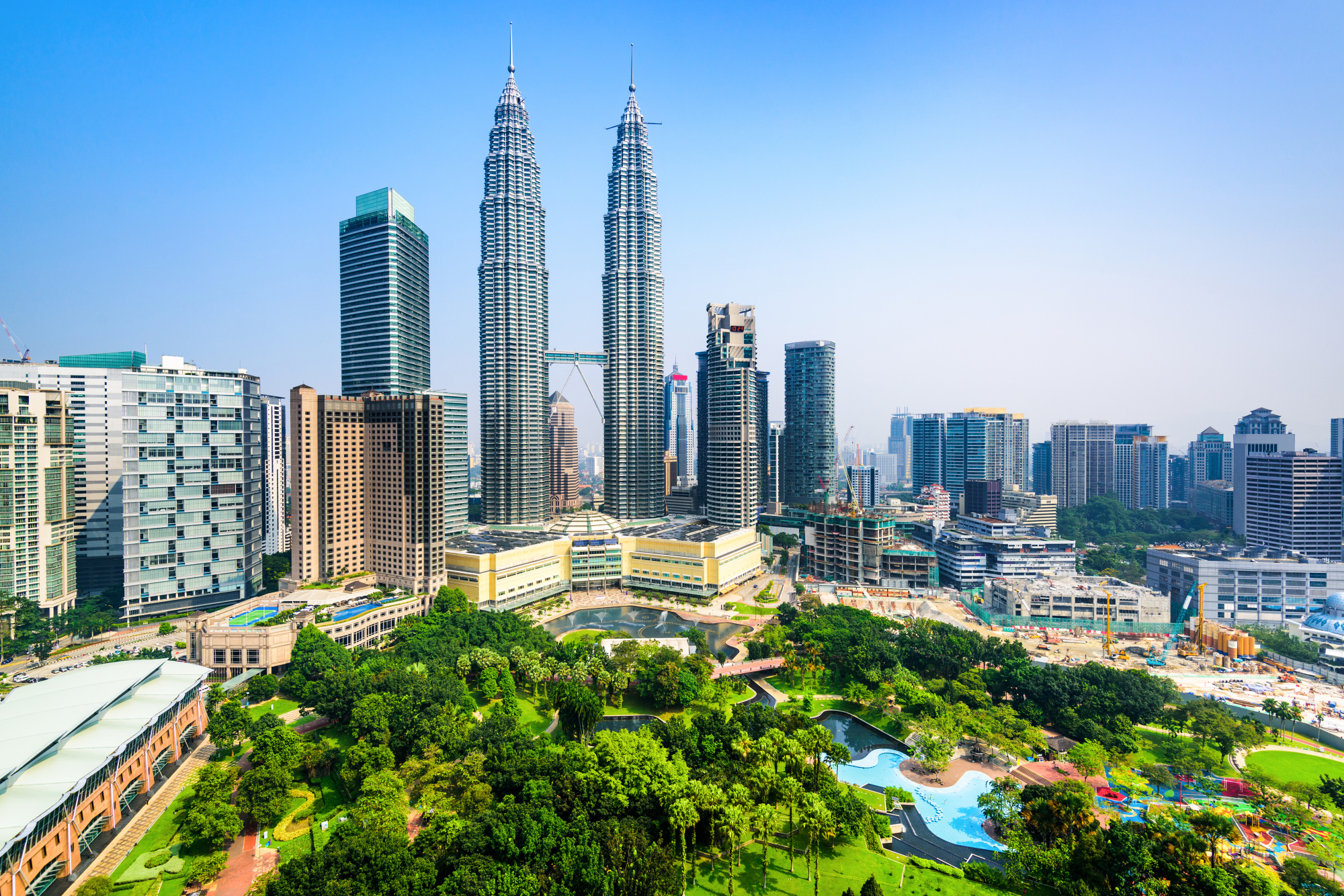One and a half years have passed since the 14th general election in May last year, when Malaysia’s first-ever change of administration was realized. Under the leadership of Prime Minister Tun Dr. Mahathir Mohamad, who has taken the helm of government for the second time, the new administration has conducted various activities with a particular focus on fiscal reconstruction and elimination of corruption. While government debt will not meet its target ratio to gross domestic product, it will decrease from 3.7 percent in 2018 to 3.4 percent in 2019. The government is also working to maximize transparency in administrative procedures. With the inflation rate reduced to around 1 to 2 percent, the Malaysian economy is steadily growing at an annual rate in the range of nearly 5 percent, supported by domestic consumption.
Foreign direct investment by Japanese companies reached approximately ¥2 trillion at the end of 2018, making Japan the second-largest investor in Malaysia after Singapore. Since the late 1980s, when Mahathir demonstrated his leadership as the fourth Malaysian prime minister, numerous Japanese-affiliated companies have entered the country, with nearly 1,400 operating today. They have been forging deep economic relations with Malaysia in such fields as electronics, automobiles, machinery, metals and chemicals.
Exchanges in tourism are also expanding. The number of Malaysian visitors to Japan in 2018 reached about 470,000, a three-fold increase from that of five years ago. People wishing to experience the same food and cultural aspects as they did in Japan after returning home represent a growing demographic, and an increasing number of Japanese companies are attempting to seize this demand. As a result, Japanese business in Malaysia is thriving in service industries such as restaurants, wholesale, retail and logistics and distribution.
In 1981, Mahathir advocated what became known as the Look East Policy. Based on the premise that the secret to the success and development of Japan lay in its labor ethics and enthusiasm for learning and work, this policy called for Malaysia to incorporate these elements from Japan to develop its own economy and society and establish an industrial foundation for the country. Since his second inauguration, he has made clear his intention to revitalize this policy. As one example, he asked Japanese Prime Minister Shinzo Abe to establish branches of Japanese universities in Malaysia. In response, Tsukuba University is currently considering plans to do this in 2022.
Behind Mahathir’s determination for people to acquire these labor ethics is an acknowledgement that human resources are critical to Malaysia’s growth in the future. The Shared Prosperity Vision 2030, the mid- to long-term policy announced by the government in October, identified the skill level of workers, a dependence on foreign labor and lack of promotion of technology as problems. The government committed to adding high-value to industries and the economy by reducing various existing disparities such as those in income and between regions and ethnic groups. Moreover, it clarified its policy to improve productivity by introducing “Industry 4.0” to small and midsized enterprises (SMEs) through “Industry4WRD,” a road map released in October 2018.
Adding high value to industries will require promoting the knowledge of corporate executives and management, as well as strategic business administration. To introduce Industry 4.0 in particular, understanding the principles of craftsmanship is necessary. In May, the Japan External Trade Organization (JETRO) jointly launched a special platform — the Malaysia-Japan Collaboration on Smart Manufacturing (Industry 4.0) — with the Malaysian government, the Embassy of Japan and the Japanese Chamber of Trade and Industry, Malaysia. We have been cultivating industrial human resources for Malaysian SMEs by providing training by Japanese companies active in the country’s manufacturing field. At the same time, we have been working to improve the productivity of SMEs that are evaluated as promising by the Malaysian government by introducing Japanese digital solutions.
Today, we believe that promotion of business between our countries in the innovation field, particularly in the digital industry, is important. Working with the Malaysia Digital Economy Corporation and the Malaysian Global Innovation and Creativity Centre, we are supporting open innovation matching between Malaysian startups and Japanese companies, while assisting Japanese startups in expanding business in Malaysia. We are eager to create business opportunities centered on fields where Malaysia excels, such as blockchain, digital payment and health care.
For over 30 years, most Japanese companies in Malaysia, manufacturers in particular, have been practicing craftsmanship while creating innovation on a daily basis. In doing so, they have continued nurturing industrial workers and training local suppliers. Malaysia has vast supporting industries, particularly in the electric and electronics fields, which are known for their ability to respond to “small-lot and high-mix production” orders. JETRO will continue its activities aimed at evolving such strengths of Malaysia and expanding business between our two countries.
Thank you.





